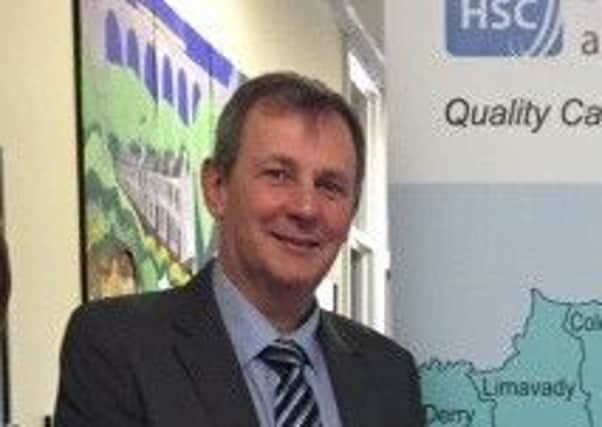Backlash over health chief's '˜don't tweet about politics' edict


The News Letter yesterday revealed that Richard Pengelly had emailed the chief executives of the health trusts to say that he was “increasingly concerned” at the number of “overtly political” tweets from health staff.
A leaked copy of his email showed that the two tweets he highlighted as “not appropriate” were critical of the DUP and Sinn Fein and had been sent from two doctors’ personal social media accounts.
Advertisement
Hide AdAdvertisement
Hide AdThe Department of Health’s permanent secretary is the husband of DUP candidate and former special adviser Emma Little-Pengelly.
The News Letter yesterday asked Mr Pengelly’s department whether he stood over his email and whether his instruction that employees of health trusts cannot make political statements applies to every employee – from cleaners to consultants.
He did not respond to the questions and the department instead reissued a statement from the previous day in which it said that staff “have the right to express their own personal opinions on social media. However, this should be in line with the HSC Code of Conduct”.
Doctors and rival politicians expressed alarm at what Mr Pengelly had done.
Advertisement
Hide AdAdvertisement
Hide AdYesterday the first trust implemented Mr Pengelly’s instruction. The South Eastern Trust emailed its staff to say that “at all times...staff should be reminded that as public servants, we must at all times remain publicly neutral in terms of expressing any political opinions for example, through social media”.
Dr Brian Patterson, former chair of the BMA in Northern Ireland, told the BBC that “this action is somewhat unusual, even extreme”.
Former Alliance minister Stephen Farry said that Mr Pengelly’s intervention was “bizarre and ill-judged, both in its own right, but particularly so given that he has an interest in that he is married to a DUP election candidate”.
Dr Farry said that NHS employees should be “perfectly entitled to be involved in politics...and indeed to stand as candidates”, but that even if that was not the case then a warning to that effect should not have come from Mr Pengelly. He said that Mr Pengelly should have recused himself from the matter.
Advertisement
Hide AdAdvertisement
Hide AdJohn Kyle, a veteran GP who is standing as a candidate for the PUP, said he had never before encountered the view that doctors should not express political views outside of work and called on Mr Pengelly to withdraw his instruction. He told the News Letter: “To crack down in that way on people using a personal Twitter account is completely inappropriate”.
Dr Kyle, who is contracted to the Belfast Trust rather than its employee, asked whether such a stance would now prohibit teachers or any other public sector employee in from expressing a public view about politics. Dr Kyle highlighted that English doctors have been far more outspoken about Conservative health secretary Jeremy Hunt.
The only mention of politics in the Belfast Health Trust’s social media policy relates to “professional use of social media”, rather than in the section on personal accounts.
However, in both of the examples cited the individuals were commenting using their personal accounts, on which they discussed everything from Israeli politics to football to the Irish language and Brexit.
Advertisement
Hide AdAdvertisement
Hide AdOne of the individuals included the overt disclaimer that they were “tweeting in a purely personal capacity”.
Royal College of Nursing (RCN) Northern Ireland Director Janice Smyth said that the RCN “actively encourages members to engage with the political process as we believe that this is an important way in which nurses can influence change and help shape health and social care policy”.
She added: “Nurses are, first and foremost, individual citizens who are entitled to express their own personal, political, views in their personal life.
“In doing so, they should be mindful of their Code of Professional Conduct and associated professional guidance on the use of social media, ensuring that their personal communications reflect appropriately upon the nursing profession.
Advertisement
Hide AdAdvertisement
Hide Ad“Provided that these principles are adhered to, the RCN sees no valid objection to nurses expressing their personal political views on personal social media sites or, indeed, in any other form of personal communication.”
And Tom Sullivan of the Chartered Society for Physiotherapy said: “Obviously there are constraints placed on individual professional behaviour in terms of their regulatory bodies and their employers.
“If the issue is a professional/clinical one then they can be referred to their regulatory body i.e. GMC, (medics )NMC (nurses & midwives HCPC (AHPs), NISCC (Social Workers).
“If the issue relates to their employers then likewise it is a matter for the employer to address in regard to their policy on social media.
“So long as the guidelines for either of those has not been contravened then I don’t see what the problem is in terms of expressing a political opinion.”